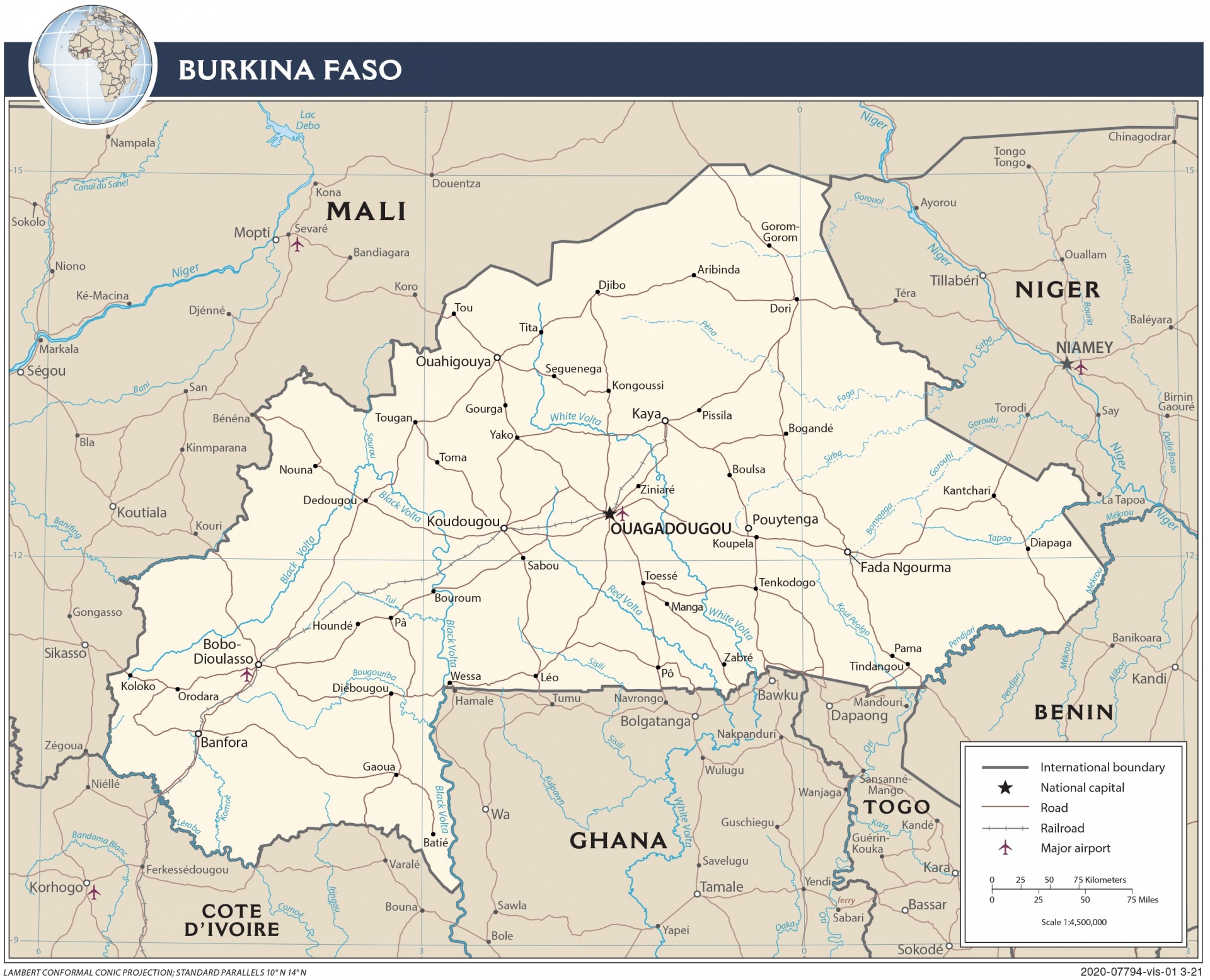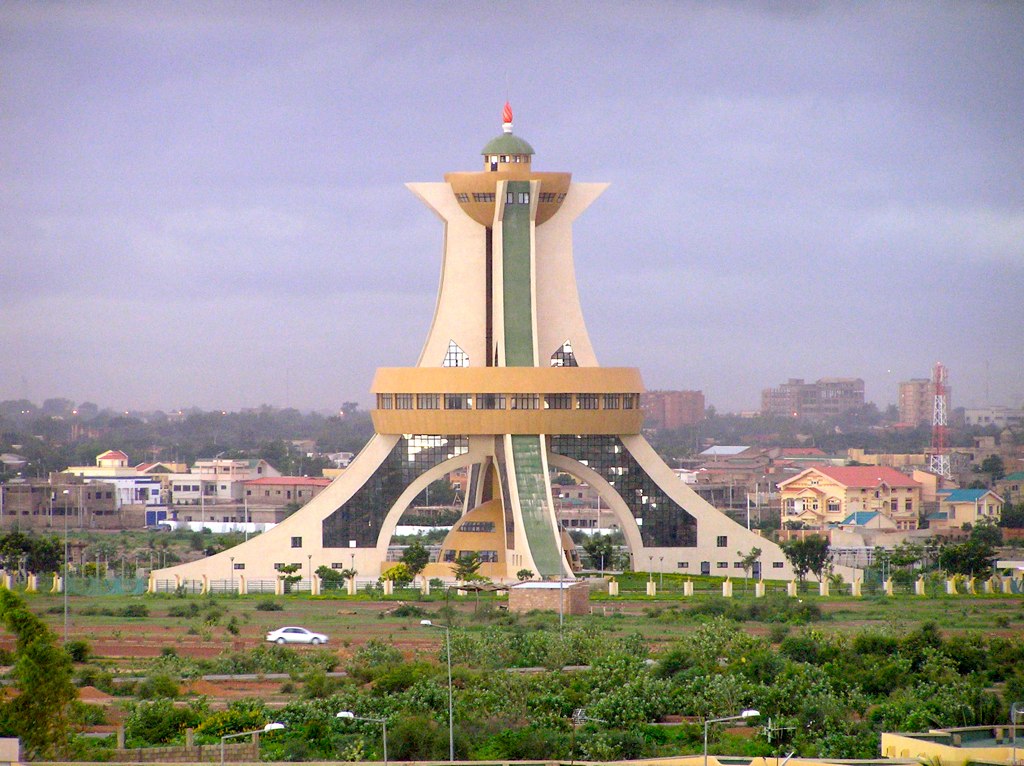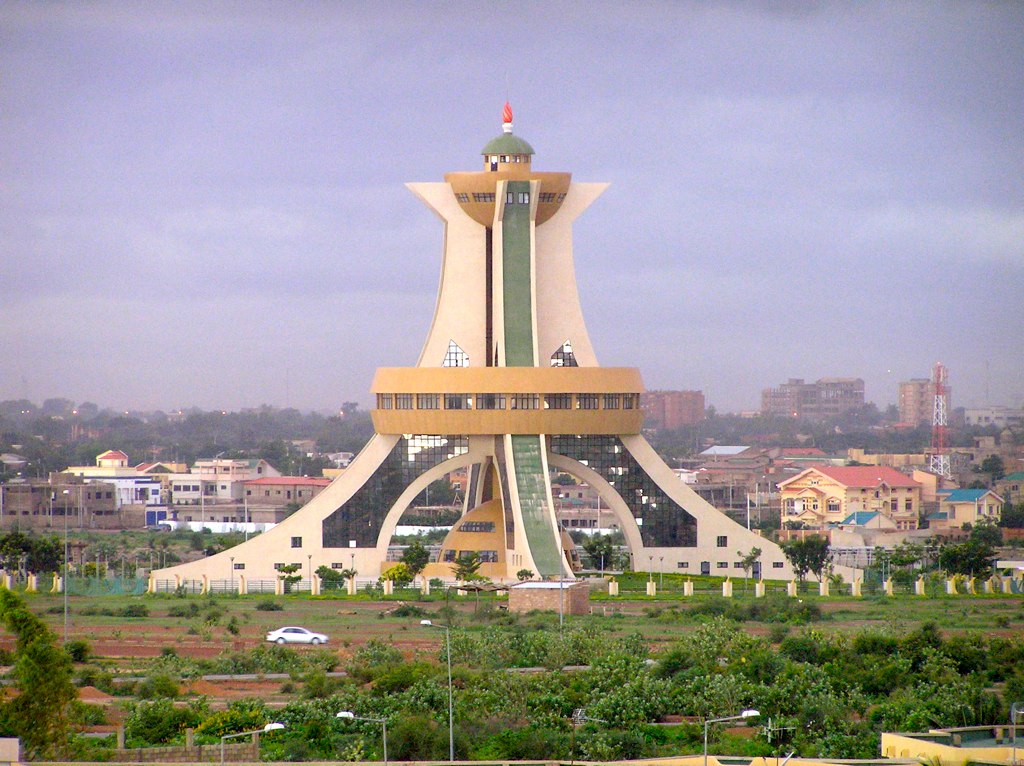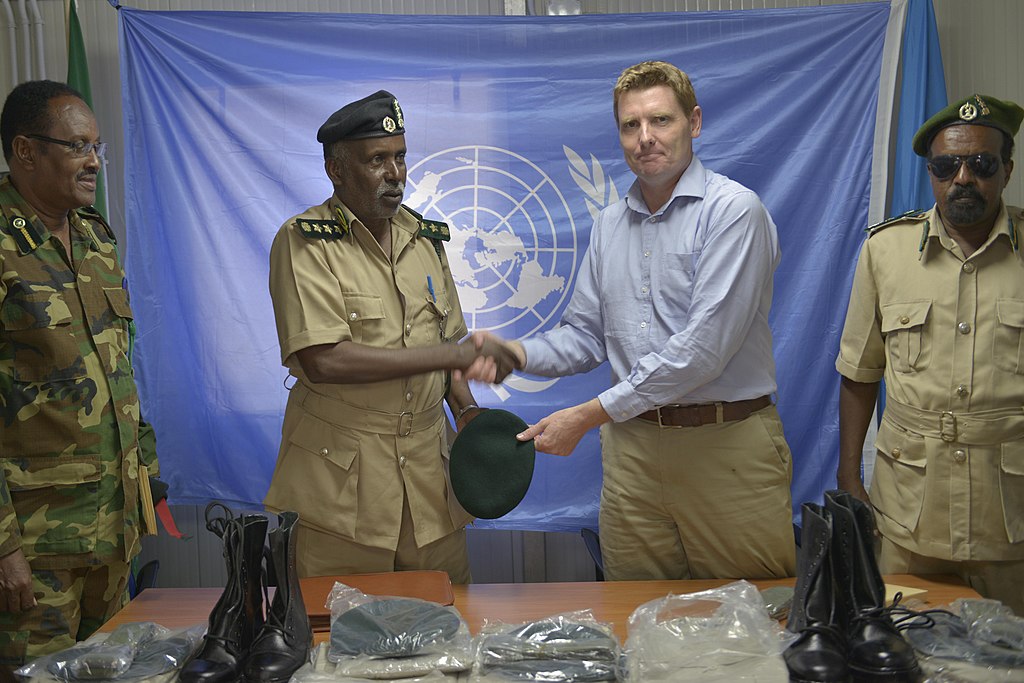
Map of Burkina Faso.
“A lot of people think it’s the Russians who are guiding us,” said Coulibaly. “But the Burkinabe aren’t children.”
Burkina Faso’s ruling military regime has denied claims that its soldiers were responsible for the massacre of an estimated 136 people in the northern village of Karma in late April. According to the accompanying article from the pan-African news aggregator AfricaNews.com, Burkinabe Defense Minister Colonel Kassoum Coulibaly claimed that the mass killings, which took the lives of an estimated 45 children on 20 April 2023, were instead carried out by jihadists dressed as Burkinabe soldiers. In many reports, however, villagers have asserted that the attackers were wearing patches indicating they belonged to the 3rd Battalion of Burkina Faso’s Rapid Intervention Brigade. According to Amnesty International, villagers have attested that the mass raids likely came as a result of their assumed complicity in allowing some members of jihadist groups to “pass through their village,” before jihadists launched a deadly attack killing 40 members of Burkina Faso’s Volunteers for the Defense of the Homeland (VDP) forces in the village of Aourema.[i] For several years, Burkina Faso has been overtaken by violence from armed groups associated with the Islamic State and al-Qaeda. Along with neighboring Mali, it is now one of the most active sites of jihadist violence in the world.[ii] As the United Nations and human rights groups have urged an investigation of the so-called Karma massacres, leaders in Burkina Faso have also claimed that these calls are being led by an “international coalition”[iii] of unnamed enemies of Burkina Faso, which are angry about its closer ties to Russia.[iv] Many reports have suggested that the Wagner Group is operating inside Burkina Faso, although the Defense Minister denies it. As he articulated: “A lot of people think it’s the Russians who are guiding us… But the Burkinabe aren’t children.” Though not necessarily implicating Wagner Group personnel, the massacre of civilians in Karma, Burkina Faso, looks and feels like another massacre of civilians in Moura, Mali, which killed an estimated 500-plus civilians under the guise of counterterrorism operations in March 2022. In that massacre, still under investigation, the culprits were not only members of the Malian army but also foreigners, widely believed to be part of the Wagner Group, which operates in support of Mali’s fight against jihadist elements.[v] Indeed, a notable trend in West Africa is the ever-deepening alliance between Mali, Burkina Faso, and Guinea, all led by military rulers, with the former two having likely welcomed Wagner mercenaries to address their destabilizing jihadist insurgencies.[vi] Collectively, these events indicate that civilians continue to bear the brunt of often-unrestrained counterterrorism efforts by African militaries. Where the Wagner Group seems to be in play, such widespread human rights abuses appear to be more severe than in other spaces where they are not.
Source:
“Coulibaly dénonce ‘une coalition international’ contre le Burkina Faso (Coulibaly denounces an ;international coalition’ against Burkina Faso),” AfricaNews.com (pan-African news aggregator, 4 May 2023. https://fr.africanews.com/2023/05/04/coulibaly-denonce-une-coalition-internationale-contre-le-burkina-faso/
Burkina Faso’s defence minister on Wednesday denounced what he said was an “international coalition” lined up against his country and alleged there had been violations of the country’s air space.
And the country’s intelligence agency said an April massacre of civilians — which some rights groups have blamed on the army — was carried out by jihadist fighters dressed as soldiers.
Colonel Kassoum Coulibaly, appointed by the military junta running the country, also echoed the denials by the new regime’s leader, Captain Ibrahim Traore, that the Russian mercenary force Wagner was operating there.
“A lot of people think it’s the Russians who are guiding us,” said Coulibaly. “But the Burkinabe aren’t children.”
Russia, he insisted, was not setting the rules, and “gives us nothing”. It was the people of Burkina Faso who were contributing to the war effort against the jihadist insurgency in the country, he said.
“There is no Wagner here.”
Coulibaly was speaking in Ouagadougou at a meeting with union representatives and leaders of other civil society groups.
He suggested that the international coalition aligned against the country — the members of which he did not identify — was responding to the country’s closer ties with Russia since the coup last September that brought the military to power.
But the country only asked for what it needed, he insisted.“We don’t need anyone to send us a single foreign soldier,” he insisted. “We have our VDP,” he added, referring to the Volunteers for the Defence of the Fatherland (VDP), an auxiliary force.
Notes:
[i] “Burkina Faso: Responsibility of the army indicated in Karma massacre,” Amnesty International, 3 May 2023. https://www.amnesty.org/en/latest/news/2023/05/burkina-faso-la-responsabilite-des-forces-speciales-de-larmee-pointee-dans-le-massacre-de-karma/
[ii] For more on the Sahel’s rise as the deadliest global region for jihadist-linked terrorism, see: Jason Warner, “Coastal West African States Brace for Wave of Terrorism From the Sahel,” OE Watch, 10-2022. https://community.apan.org/wg/tradoc-g2/fmso/m/oe-watch-articles-2-singular-format/428040; Jason Warner, “African Leaders, UN See Terrorism in the Sahel as Dire,” OE Watch, 11-2022. https://community.apan.org/wg/tradoc-g2/fmso/m/oe-watch-articles-2-singular-format/429303; Jason Warner, “Global Terrorism Declined Slightly in 2022, With the Sahel as the New Epicenter,” OE Watch, 05-2023.
[iii] The trend of certain francophone African states decrying French, Western, or international forces targeting them or supporting violence within them has been on the rise. For examples, see: Jason Warner, “CAR Joins Mali in Accusing France of Funding Terrorists,” OE Watch, 04-2023.; Jason Warner, “Mali Claims France Funded Terrorists; France Denies,” OE Watch, 10-2022. https://community.apan.org/wg/tradoc-g2/fmso/m/oe-watch-articles-2-singular-format/428171
[iv] As Burkina Faso has become one of the epicenters for jihadist violence globally, it has undertaken a shift away from historical reliance on France, and toward Russia. For more, see: Jason Warner, “Burkina Faso Fights Terrorism With Recruits and Russia,” OE Watch, 02-2023. https://community.apan.org/wg/tradoc-g2/fmso/m/oe-watch-articles-2-singular-format/436264; Jason Warner, “Burkina Faso: A Bellwether on Russian and French Presence,” OE Watch, 11-2022. https://community.apan.org/wg/tradoc-g2/fmso/m/oe-watch-articles-2-singular-format/429302
[v] “Mali: Massacre by the Army, Foreign Soldiers,” Human Rights Watch, 5 April 2022. https://www.hrw.org/news/2022/04/05/mali-massacre-army-foreign-soldiers
[vi] For more on the deepening diplomatic and security links between Mali, Burkina Faso, and Guinea, see: Jason Warner, “Russia-Supported Military Rulers in Mali, Burkina Faso, and Guinea Continue To Deepen Ties,” OE Watch, 04-2023.; Jason Warner, “”West African States Ruled By Military Leaders Seek To Circumvent Sanctions,” OE Watch, 03-2023.
Image Information:
Image: Map of Burkina Faso.
Source: https://www.publicdomainpictures.net/en/view-image.php?image=441923&picture=burkina-faso-transportation
Attribution: CCO Public Domain



